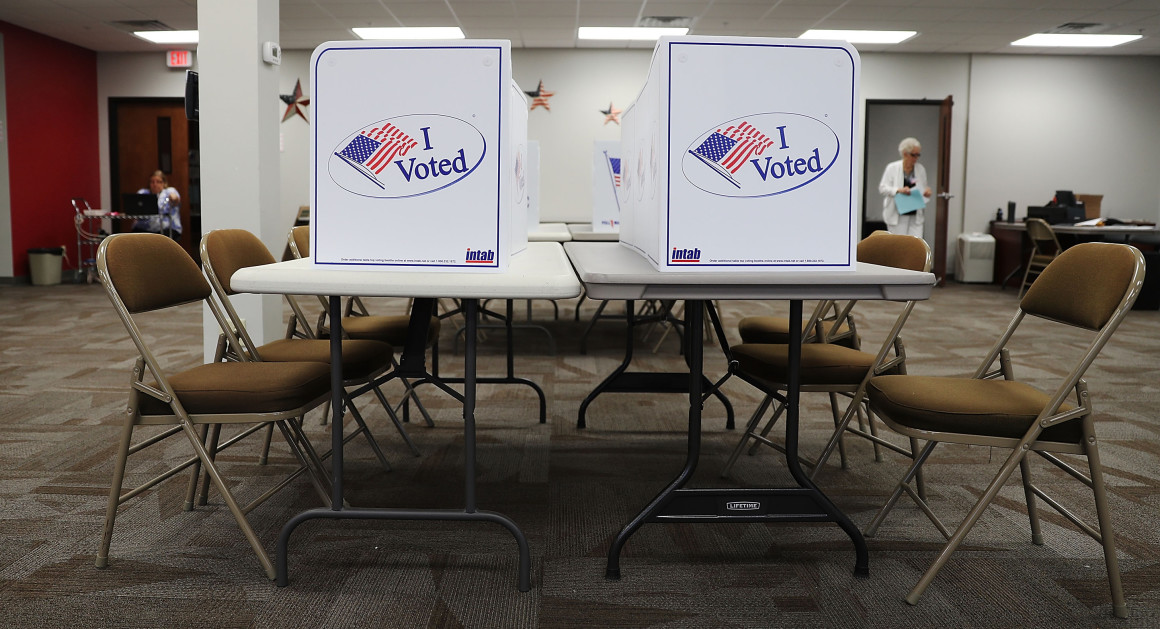OCTOBER 25, 2016
Photo: Politico
Her name was Annette Weis Fleming.
She was one of the greatest influences in my life, and she introduced me in a big way to the joys of politics, a joy I carry with me to this day. She was my grandmother, and I called her Nana.
We lived in Waterbury, Connecticut. This wasn’t polo-pony Connecticut by any means — Waterbury was a tough industrial city with brass factories that always seemed to be on the verge of shutting down. It was a solidly Roman Catholic town — the old joke was that, in Waterbury, a mixed marriage was between an Irish Catholic and an Italian Catholic.
And Waterbury loved its politics. Though all official business took place in City Hall, the real center of political power was on nearby Willow St. in the form of two rival funeral homes located directly across from one another. Yes, the two major political power brokers in Waterbury when I was growing up were morticians. (It sounds like a Coen Brothers movie plot.)
On the east side of the street was what we would call today the “red” funeral home owned by Republican Raymond Snyder, and on the west side of Willow was the “blue” parlor operated by Democrat Edward Bergin. Every two years, these two would run for mayor, and the mayoralty would regularly change hands between Snyder and Bergin all the time. It was that kind of town.
Nana was a loyal lieutenant in the Bergin machine, and make no mistake about it, it was a machine. I had often heard it said that Nana was the best district leader in town when it came to getting out the vote on Election Day, and one day, when I was about 8 or so, she invited me to come under the curtain to watch her at work. I quickly became the youngest cog ever in the Bergin political machine.
Nana’s assignment was the area around Columbia Blvd., which was known by all Waterbury as “the Jewish district.” And she knew everyone and everything about the district by heart, and she got to prove it on Election Day.
The polling place was Kingsbury School, and Nana’s battle headquarters was set in the school’s home economics room. In those days, voter rolls were printed on easel sized sheets, which listed every street in the district and the names of every registered Democrat on those streets, with a special number assigned to each voter. Nana would then proceed to paste up all of those sheets all over the walls of the home ec room.
I had a special assignment. I was given a pencil and a note pad, and I was told to sit directly behind the poll worker who was checking in voters. When each voter checked in, the poll worker would loudly announce the voter’s registration number to his colleagues. I would quickly write down that number, and when I had filled all 20 lines of the pad, I would tear off the sheet, and little Tommy would run as fast he could up the school stairs to the home ec room to give it to Nana.
Using the numbers I wrote, she would then ask her staff to cross off the names of the people who had already voted. I then rushed back down to the gym to collect 20 more numbers and so on and so forth.
After the lunchtime rush would be when Nana really went to work. She would go from voting sheet to voting sheet and took notes as to who hadn’t yet made it to the polls. Then out came the address book and rotary phone, and she was off to the races, with some variation of…
“Mrs. Spiegel? Hi, it’s Annette Fleming. Good, and you? How are the girls? Oh, that’s nice. You know, today is Election Day, and I just noticed that you haven’t voted yet, and I was worried. Are you feeling alright? A little under the weather? That’s OK, because we can send a car over for you. How soon could you be ready? Fine, our driver will be right over, and you’ll be here and back home in no time. No trouble at all. We really need your vote today. We’ll see you soon. Bye.”
God, she was smooth. And she always got her voters to the polls. By the time the polls closed at 8pm, and the voting machines were opened to reveal the results, there was rarely any suspense. Nana’s side always won. She never gloated about it, but I do remember every election night when the results were announced, the smallest of smiles would register on her face, satisfaction for a job well done.
Nana passed away at the age of 84 over three decades ago, and I’m only sorry that she didn’t have the chance to meet my future husband, Dan. I would like to think that, for Nana, it wouldn’t matter whether Dan was Jewish or even that he was a man. As long as he was a Democrat.
It’s two weeks until Election Day, and when I’m standing in line at my polling place, I shall be thinking, as I always do, of Nana, and the incredible gift of political passion that she instilled in me. I am grateful till this very day.
Thanks, Nana.












